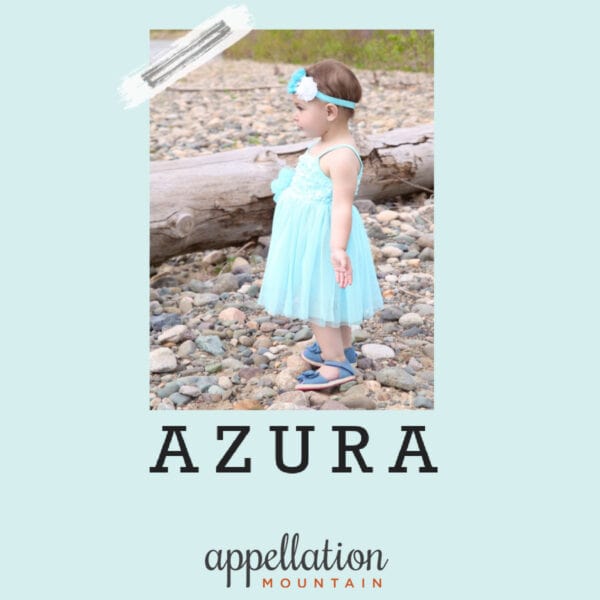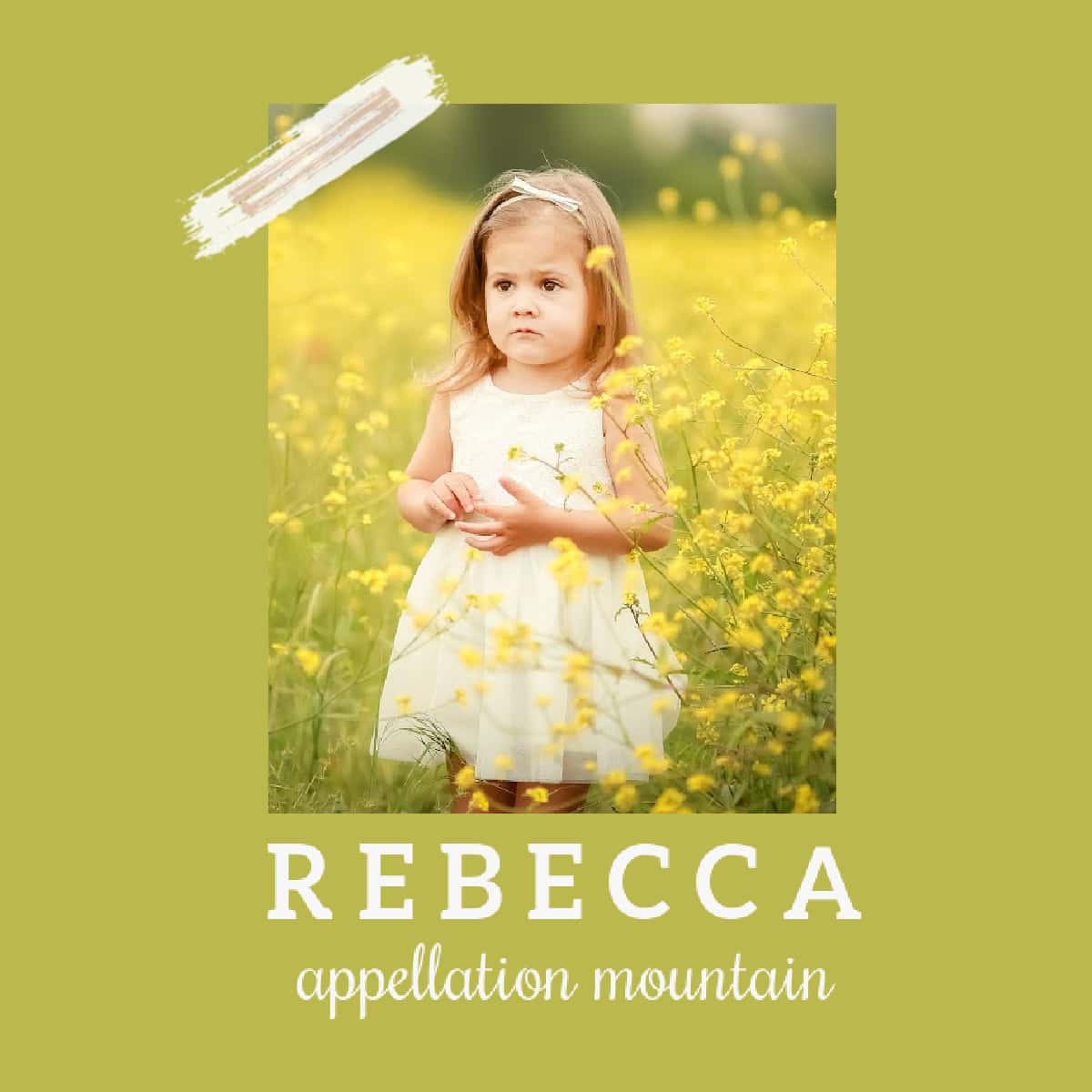Today’s choice sounds like a peaceful bird, but he’s actually borrowed from a fiercer beast.
Thanks to Abbey for suggesting one she’s considering for baby #2! Our Baby Name of the Day is Dov.
Short,single-syllable names for boys have risen in recent years, from antique revivals like Max and Gus to newer discoveries like Jett and Dax.
Dov doesn’t fit in either category – he’s a Hebrew name derived from the word for bear. His pronunciation isn’t quite like Dove; instead, he’s somewhere between dohv and dahv.
There are bunches of notable Dovs, most of them Israeli or with family ties to Israel, including:
- American Apparel founder Dov Charney. On the plus side, he’s a fearless innovator, known for stylish, simple clothes manufactured right in the heart of Los Angeles. On the downside, he’s pretty controversial;
- On a brainier note, Dov Tamari was an influential mathematician;
- In Quentin Tarantino’s Death Proof, Eli Roth makes a cameo as a character called Dov;
- Leon Uris gave the name to a teenaged Auschwitz survivor in his book, Exodus. The character’s anger made for a contrast with his peaceful-sounding name.
I was about to characterize Dov as a relatively modern name, but then I came across an early eighteenth century rabbi, an early leader of Hasidic Judaism, called Dov.
My first thought was that Dov was an adopted name – after all, Dov Tamari changed his name after moving to Palestine as a young man.
Instead, Dov was born Dov Ber – literally, Bear Bear. It turns out that’s not a mistake. The future rabbi was born in what is today the Ukraine. I couldn’t find data specific to the Ukraine at the time of his birth, but it sounds like the double naming practice was intentionally repetitive and not uncommon.
Dov is unusual – never in the US Top 1000 – but not unheard of in the US today. The comments at A Mother in Israel suggest that Dov would be more popular with Orthodox Jews, but not necessarily for any specific reason.
The real question, I think, is whether Dov is fair use for families without Jewish heritage. With his nature name link, he seems more approachable that some uncommon choices – “Dov is Hebrew for bear” seems as sensible an explanation as “Abigail means ‘my father is joy’ in Hebrew.” Plus, his short, ends-in-v sound is edgy, interesting, and current.
If you’re looking for an unusual Hebrew name that wears easily in twenty-first century America, I think Dov could be the right pick.





I like Dov, it’s really striking.
We’re Christian, but have a surname that “sounds Jewish”, so I’m conflicted about using given names that also “sound Jewish”. I worry that it would be like the Seinfeld character Donna Chang — who wasn’t Chinese. However the names that feel “off-limits” tend to be Yiddish, not Hebrew, probably because the Yiddish names seem more Orthodox or Hasidic. I wouldn’t use Hillel or Shmuley, but Ari and Tova are fair game.
I like it. But it doesn’t really work with my last name (also short, one syllable, noun). It’s the name of one of the main characters on Rookie Blue.
Yuck! Dov Charney does it in for me. But I’d call a boy Dev, nn for Devon or Devlin.
It’d make a great way to honor a female Dove…I had a great grandmother Dovie (as well as a great grandfather Lark, and grandfather Lark Jr.) so I’ve thought about using bird names to honor them (as well as my best friend Robin). But Dov would make an interesting choice as a middle name if not in the first name spot.
I don’t think there’s any issue with non-Jews choosing this name. It’s not like Cohen or something. 🙂
As for pronunciation, if you pronounce it as dohv any Israeli would know you meant Dov, not so with dahv.
Nice choice!
I know what you mean – if you introduce your son Dov at a playgroup, people might say, “I didn’t know you were Jewish!” I think it’s absolutely fine to use names from other cultures, but the possibly constant explanation of their name might grow tiresome…
Do you think that many people would know it was a modern Hebrew name? I’m pretty certain most people here in the UK wouldn’t. As an unusual name, it would get asked about though, and yes, there is always that risk of getting cheesed off forever explaining its origin — but that’s true of all off-beat names!
Very good point!
I think this name would be confusing – with spelling and pronunciation. I’m not sure it’s worth it, quite honestly, but it does seem cool. I’d almost expect Dov to be a nickname for some longer name, but it isn’t. Anyway, it reminded me of a cool nickname name, Chet – short for Chester! I think that has more substance.
I too would prefer this as an abbreviation for a longer name. The other day we were on the phone with a friend of ours, Dave, and my daughter asked to speak with him. She’s two, so we had to first explain to her who it was she was about to talk to. We gave her the phone and, in her bright, friendly voice, she immediately said, “Hi, Dov!”. My husband and I chuckled when we heard her and gently corrected her pronunciation, but when I saw today’s post I thought, “Why not?” I think Dov would work for the daring David who doesn’t want to be just another Dave.
Not really my style but I tend to prefer longer names. My current boys list includes Bartholomew, Peregrine and Nathaniel 🙂
I don’t think there’s any reason non-Jewish families should avoid Hebrew names – as you say, plenty of them are in every day use, even in the Top Ten. And there’s certainly no rule that says your heritage must dictate your child’s name!
The question is more about whether the name would wear well. I always wonder what it is like to have a name that implies you’re something that you’re not. There was a discussion about this related to Shoshanna: https://appellationmountain.net/2010/08/16/baby-name-of-the-day-shoshanna/
I’d say Dov – and Lev, too, though that’s a little different – are fair game for parents, regardless of their backgrounds. But only just barely – you can name your kids Dov and Astrid and Midori and people will assume you have eclectic taste in names. But name your kids Dov and Shoshanna and Tova and your family suddenly sounds very Jewish, just like if you name your kids Lief and Astrid and Linnea, you sound awfully Scandinavian. It’s up to the parents whether this is an issue.
My husband tends to be a stickler on this question. I can imagine he’d never name a child Rufus if the baby wasn’t born with red hair, and I can imagine him rejecting a name like Fleur because we’re not French. So some of it is preference – but the more mainstream a name, the less we feel that it is exclusive to a certain heritage.
All that said, I don’t want to discount the idea that there’s a subtle prejudice pushing us away from certain names because they “sound Jewish” or “sound black.” I’d be stunned to meet a blonde, blue-eyed boy named Kwame – but I don’t have a good reason why that’s so.
Since so many people bear (pardon the pun) names of Hebrew origin from the Bible, why shouldn’t non-Jewish families use other Hebrew names? Hebrew as a spoken language is actually quite new — resurrected in the last century. Before that it had become a literary language of Judeo-Christian texts and has had considerable cultural influence in the West, so it could be argued it is just as valid a source of names for people of all backgrounds as Latin and Greek.
as a MODERN spoken language — it was of course spoken in ancient times too :).